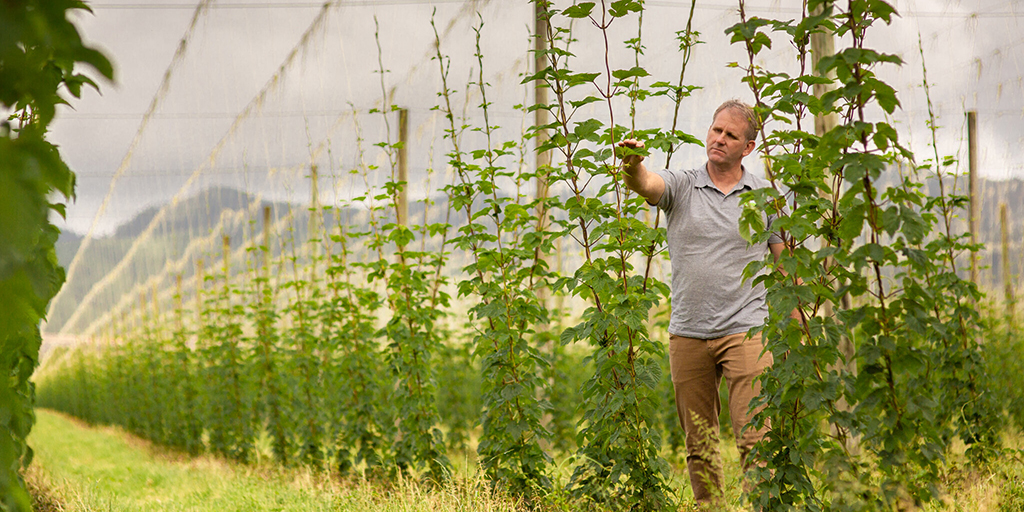
Brewers Guild achieves international recognition for NZ styles
The Brewers Guild of New Zealand has successfully lobbied the US Brewers Association to add two New Zealand beer styles to its guidelines for the first time.
The New Zealand Pale Ale and the New Zealand India Pale Ale will now sit alongside more than 150 internationally-recognised beer styles collated by the Association, which are used as the basis for judging beer competitions across the world – including the Australian International Beer Awards and the biennial World Beer Cup.
It is the culmination of two years of hard work by the Brewers Guild of New Zealand, and its Executive Director, Sabrina Kunz, said it is hugely significant.
“The vast majority of large [beer] competitions held around the world, perhaps with the exclusion of the UK, rely on these guidelines as the basis for their competitions,” she said.
“So it means we’ve created an international standard now for comparing New Zealand IPAs and New Zealand Pale Ales at some of the largest competitions around the world, which is really cool.”
Kunz said in 2019, the Guild did research using Untappd and found, at the time of their application to the Brewers Association, there were 7,600 beers around the world claiming to be New Zealand Pale Ales.
“We thought there should be styles [in the guidelines] that are reflective of what we’re brewing in New Zealand, which is these amazing beers with our hops.
“We want to make sure that internationally, when people are calling their beer an NZ IPA or an NZ Pale Ale, that it meets that standard, so I think it is hugely significant for the international recognition of New Zealand styles and New Zealand raw ingredients.”
And the most distinct ingredient which sets the New Zealand Pale Ale and IPA apart from other examples of those styles is the hops.
The Chief Executive of NZ Hops, Craig Orr, said this decision from the Brewers Association is a huge boost for the industry.
“This recognition of the unique style of New Zealand-grown hops catapults our industry onto the world stage,” Orr said.
“It honours our growers…and our partners Plant and Food Research, with whom we share a long-term programme on innovation for new varieties. Plus, it acknowledges craft brewers everywhere for creating this category by continuing to innovate and push boundaries with our varietals. It is just phenomenal news.”
International beer judge and New Zealand beer writer, Geoff Griggs, has judged at multiple beer competitions across the world and said the specific New Zealand hop character – which the guidelines describe as tropical, stone fruit, sulphur, diesel-like, citrusy and grassy – really does set New Zealand Pale Ales and IPAs apart.
“[This inclusion] is well overdue, in that there are so many examples of these styles being produced not just in New Zealand, but elsewhere as well,” Griggs said.
“Obviously, the distinctive character of New Zealand hops needs to be reflected, and this goes some way to addressing that situation.”
He said the inclusion of the two styles in the Brewers Association guidelines will now give New Zealand breweries more incentive to enter world-leading beer competitions, and have a greater chance of success when they do, with brewers having to come up with work-arounds until now.
“A lot of them wouldn’t have even entered, and a lot of them would have been entered into Aussie Pale Ale categories or ‘Other’ pale ale categories, and then presumably with some brewers notes.”
Sabrina is extremely proud of the work that has gone into making this happen, describing it as a truly collective effort.
“This is really reflective of what a member association does as a collective exercise,” she said.
“It was no single individual, it was no single brand, it was the New Zealand beer community coming together and saying this is the beer that we make, and we want that reflected.”
We spoke with Brewers Guild of New Zealand Executive Director, Sabrina Kunz, on the Beer is a Conversation podcast recently, hear her thoughts on the New Zealand Guild’s role…




